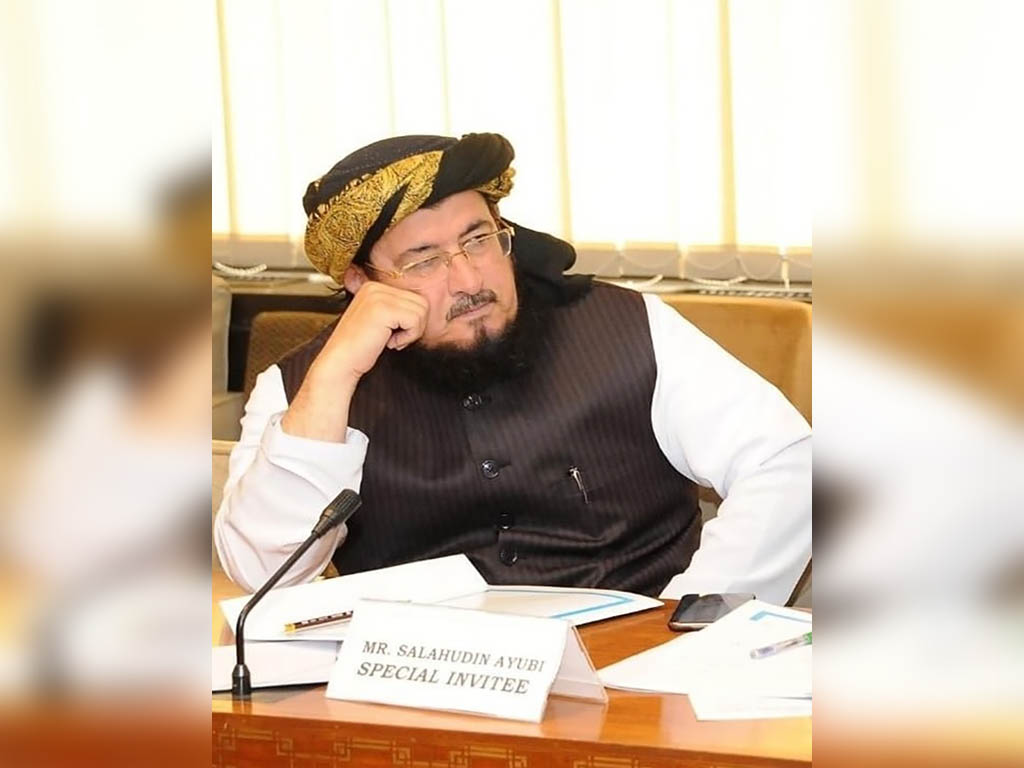Pakistan is in the news for all the wrong reasons once again after it was reported by local media that Maulana Salahuddin Ayubi, a sitting Member of Parliament, has got married to a 14-year-old in Chitral, the largest district in the Khyber-Pakhtunkhwa province of the country.
A leader of Jamiat Ulema-e-Islam (JUI-F) party, Ayubi, who is believed to be in his early 60s, is a Member of National Assembly (MNA) from Killa Abdullah constituency. The matter was brought to light by an NGO working for the welfare of women in the district. The Anjuman Dawat-o-Azeemat social organization works extensively to check 'dubious marriages' of Chitrali girls.
"According to sources, the minor girl belongs to the Daroosh area of Chitral, and her family was currently out of the district. Police told the news source that Nikah of the girl was solemnized out of Chitral and the matter was under investigation," reported Bol News.
Another news organisation – Pakistan's leading daily Dawn – reported that Chitral police station SHO Inspector Sajjad Ahmed had confirmed receiving the application from the NGO and said a proper inquiry would be launched soon.
"He said the girl was a student of Government Girls High School, Jughoor, where her date of birth had been recorded as Oct 28, 2006, which showed that she had not attained the age of marriage," the newspaper reported.
The act further dents the reputation of the ruling government led by Imran Khan which is already facing global ire for mistreatment of its religious minorities, promoting cross-border terror activities and failing to prevent the growth of violent extremism at home.

Close to 20 per cent of girls in Pakistan are married before their 18th birthday (Pic courtesy: Twitter/@AuratAzadiMarch/@ShafaqHasnain)
Islamabad-based Aurat Azadi March, which organises an annual march every year to demand social justice and equality for women and other marginalized groups suffering due to patriarchal, capitalist and fascist exploitation, said it was "disgusted" to learn about Ayubi's marriage to a 14-year-old.
"We march, organize and advocate because in this patriarchal country, men in power are blatantly undermining the few laws that are there to protect women and girls. In Pakistan, every 5th girl is married under the age of 18. Sindh is the only province which has updated the Child Marriage Restraint Act 1929 increasing the marriageable age to 18," the organisation, which commemorates the struggles for women’s emancipation across Pakistan, said in a series of tweets.
However, despite widespread condemnation of child marriage on social media and laws like the Prevention of Child Marriage Act, the nikah (marriage) ceremonies of children under the legal age of marriage – still kept at 16 years in most of the Pakistani provinces – are still reported every day from all corners of the country.
In its 2019 report, the United Nations Committee on the Elimination of Discrimination against Women, had asked the country's government for more information on the progress it has made to end the menace of child marriage in Pakistan.
It included the "updated status" of the bill to set the legal age of marriage at 18 years for both men and women throughout the territory of the state.
The committee was also aware of the practice of abduction of women and girls belonging to religious minorities for the purpose of forced conversion and forced marriage.
Citing Pakistan's Demographic and Health Survey annual reports, various agencies have reported that close to 20 per cent of girls in Pakistan are married before their 18th birthday.
"Some Pakistani Muslims believe their religion requires them to marry off their daughters once they reach puberty. This also relates to a desire to protect a girl’s izzat (honour), and the high premium attached to the chastity of young unmarried girls. A 2018 study revealed that some parents marry off their daughters at a young age to save the dowry amount because with the age of the girl, the price of dowry increases," says Girls Not Brides, a global partnership of more than 1300 civil society organisations from over 100 countries committed to ending child marriage and enabling girls to fulfil their potential.
Frequent disasters – like floods, drought, heatwaves, earthquakes – and grave human rights crisis in several provinces like Balochistan have made the girl child in Pakistan more vulnerable.




















